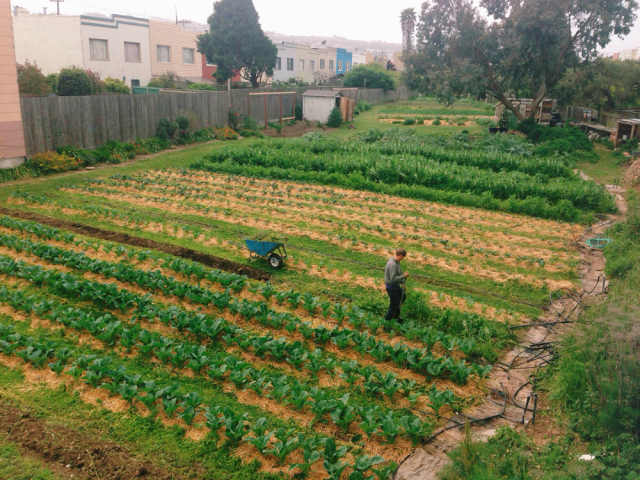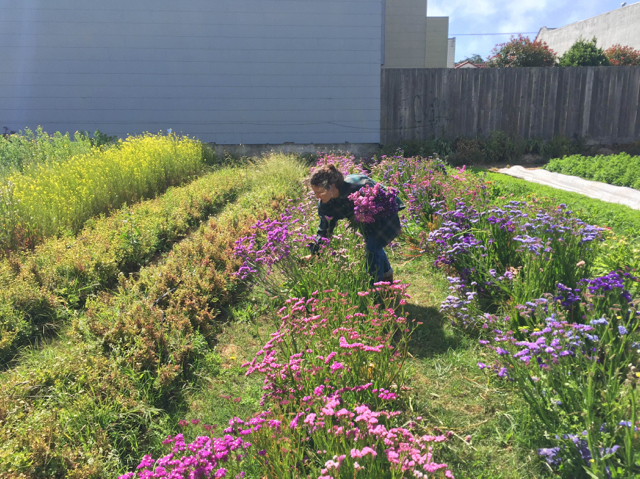about
UPDATE: As of December 2016, Little City Gardens is without land and has closed its operations. Please see the info below and our archives to learn more about the project (2010-2016), and stay tuned to our Instagram for announcements about writing / speaking and a forthcoming film.


What is Little City Gardens?
It is a working urban farm in San Francisco, and it is an ongoing inquiry into the economic viability of small-scale urban market-gardening. We have been working steadily since 2010 towards our aims: to craft a way for urban food production to sustain us economically, to build community through innovative, collaborative local food systems, and thus to help establish the path of ‘urban farmer’ as a career. We are motivated by the belief that urban farming should be a common livelihood in the United States as it has been, and still is, in some other countries. Through this project we are actively wondering: what does it take to make this happen?
How did you get started?
The project was co-founded by Brooke Budner and Caitlyn Galloway in 2007. Brooke discovered the first incubator garden site while scanning the neighborhood from the vantage point of her roof. She contacted the landlord who agreed to let her begin gardening. With the help of friends and neighbors, she began transforming the lot from an unused field of weeds and brambles to an abundant garden. In early 2008, Brooke and Caitlyn met and began working together, sharing ideas and time in the garden. Together they developed vision, community involvement, a name and a business plan, and they moved to their current farm space in Spring 2010.
What is happening now?
In 2013, Brooke moved onto more rural pastures off the coast of Washington. Caitlyn continues to run the farm, carrying forth the visions they created together.
Little City Gardens is currently a small farm business, an educational site, and a working model of food production in San Francisco. We provide greens, herbs, and seasonal veggies to restaurants, local markets, and neighbors. We offer occasional tours and workshops in the garden.
What motivates you?
We are young farmers in a nation with a food system gravely out of balance. We know that the economics and politics of food are skewed in favor of large corporate agriculture. This not only creates harsh economic realities for small-scale farms, both urban and rural, but also is fueled by the use of petrochemicals and gasoline, and is based on manipulative global trade policies. We are inspired to get creative. We are working toward an urban farming model that makes up for its small scale by recycling urban resources (neighborhood composting), eliminating transportation costs (deliveries by foot and by bicycle), creating active, face-to-face relationships with neighbors and customers, and enlivening new forms of community support. The more community we can build around the growing of our food, the more power we can have to change our food systems.
